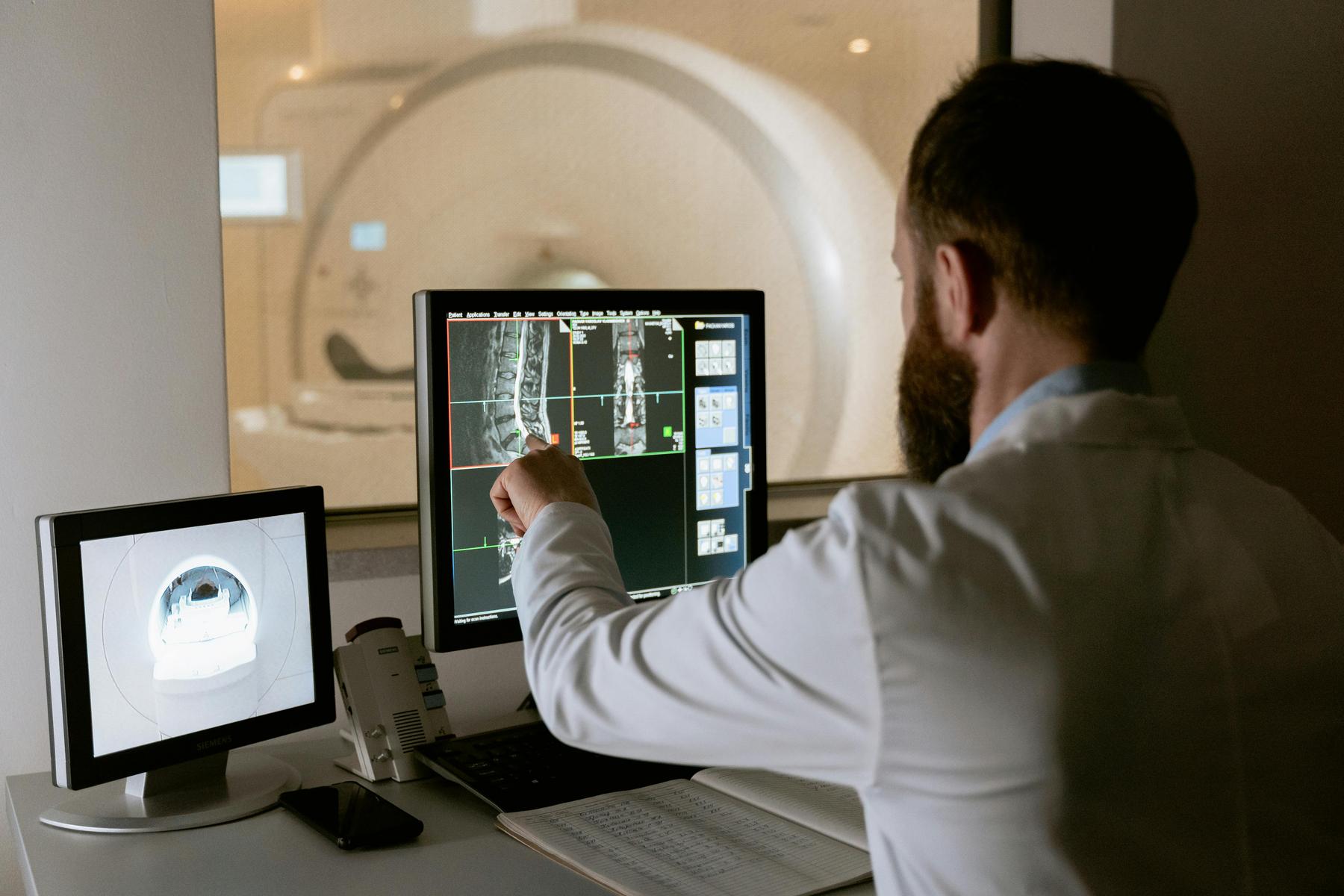The operating theatre doors close behind you, and the surgical journey begins—but what happens when the real transformation starts? For thousands of Australians undergoing bariatric procedures annually, the months and years following surgery present a complex landscape of physical, psychological, and lifestyle adaptations that extend far beyond the initial weight reduction.
Post-bariatric surgery life represents a profound restructuring of one’s relationship with food, body image, and daily functioning. Whilst the surgical intervention provides the mechanical foundation for weight management, the subsequent journey demands comprehensive understanding, dedicated support, and realistic expectations about the multifaceted changes that lie ahead.
What Physical Changes Can You Expect After Bariatric Surgery?
The physical transformation following bariatric surgery extends well beyond the numbers on the scale, encompassing systematic changes throughout the body that continue evolving months and years after the procedure.
Digestive System Adaptations
The reconstructed digestive anatomy fundamentally alters how the body processes nutrients and responds to food intake. Patients commonly experience rapid satiety, requiring significant adjustments to eating patterns and meal composition. The reduced stomach capacity means that consuming small, frequent meals becomes essential rather than optional.
Many individuals notice heightened sensitivity to certain foods, particularly those high in sugar or fat, which may cause dumping syndrome—a condition characterised by nausea, cramping, and diarrhoea. This physiological response serves as a protective mechanism, naturally discouraging consumption of foods that could compromise surgical outcomes.
Metabolic and Hormonal Changes
Bariatric procedures trigger profound metabolic shifts that influence hunger hormones, insulin sensitivity, and energy regulation. Research indicates that these surgeries can significantly improve or resolve type 2 diabetes, hypertension, and sleep apnoea in many patients.
The hormonal changes affecting ghrelin (hunger hormone) and GLP-1 (satiety hormone) production contribute to sustained appetite suppression and improved glucose metabolism. These alterations represent some of the most significant non-weight-related benefits of bariatric procedures.
Skin and Body Composition Changes
As weight reduction progresses, many patients develop excess skin, particularly in areas such as the abdomen, arms, and thighs. This loose skin can impact mobility, hygiene, and psychological well-being, leading some individuals to consider body contouring procedures.
Muscle mass preservation becomes crucial during the weight loss phase, requiring adequate protein intake and resistance exercise to maintain metabolic health and functional capacity.
How Do Nutritional Needs Transform Following Weight Loss Surgery?
The altered digestive anatomy creates unique nutritional challenges that require lifelong attention and professional guidance from qualified dietitians specialising in bariatric care.
Protein Requirements and Absorption
Post-bariatric patients typically require 60-80 grams of protein daily, representing a significant increase in protein density compared to pre-surgical eating patterns. The reduced stomach capacity combined with altered digestion can make meeting these requirements challenging without careful meal planning and supplementation.
Protein deficiency can lead to muscle loss, hair thinning, poor wound healing, and compromised immune function. Many patients benefit from protein supplements, particularly in the early post-operative period when solid food intake remains limited.
Micronutrient Deficiencies
Bariatric procedures can significantly impact the absorption of essential vitamins and minerals, necessitating comprehensive supplementation protocols. Common deficiencies include:
- Vitamin B12: Critical for neurological function and red blood cell formation
- Iron: Essential for preventing anaemia, particularly in menstruating women
- Calcium and Vitamin D: Crucial for bone health and preventing osteoporosis
- Folate: Important for DNA synthesis and red blood cell production
- Thiamine (B1): Necessary for nervous system function and energy metabolism
Regular blood monitoring allows healthcare providers to identify and address deficiencies before they manifest as clinical symptoms.
Hydration and Fluid Management
The reduced stomach capacity affects fluid intake capacity, making dehydration a persistent risk. Patients must develop new hydration strategies, typically consuming fluids between meals rather than with food to maximise nutrient absorption and prevent uncomfortable fullness.
What Psychological Adaptations Are Common After Bariatric Procedures?
The psychological landscape following bariatric surgery proves as complex as the physical changes, encompassing identity shifts, relationship dynamics, and emotional regulation challenges.
Identity and Body Image Adjustments
Many patients experience significant psychological adjustment periods as they adapt to their changing physical appearance and social interactions. The rapid physical transformation can create a disconnect between internal self-perception and external reality, sometimes referred to as “phantom fat” syndrome.
This psychological adaptation period may involve grief for the former self, anxiety about maintaining weight loss, and confusion about new social dynamics. Professional psychological support proves invaluable during this transition period.
Food Relationship Changes
Bariatric surgery fundamentally alters the relationship between emotions and eating behaviours. Patients who previously used food for emotional regulation must develop alternative coping strategies for stress, boredom, celebration, and social situations.
The inability to consume large quantities of comfort foods can initially create emotional distress, requiring development of new reward systems and emotional management techniques.
Social and Relationship Dynamics
Weight loss can significantly impact family relationships, friendships, and romantic partnerships. Some relationships may strengthen as health improves and confidence increases, whilst others may experience tension related to changing dynamics or others’ discomfort with the patient’s transformation.
| Post-Bariatric Life Phase | Primary Focus | Common Challenges | Key Support Needs |
|---|---|---|---|
| Early Recovery (0-3 months) | Healing and adaptation | Food tolerance, energy levels | Medical monitoring, nutritional guidance |
| Active Weight Loss (3-18 months) | Establishing new habits | Rapid changes, loose skin | Psychological support, exercise guidance |
| Maintenance Phase (18+ months) | Long-term sustainability | Weight regain prevention | Ongoing monitoring, lifestyle support |
How Can You Manage Weight Fluctuations in Post-Surgical Life?
Weight management following bariatric surgery requires ongoing vigilance and adaptation, as the honeymoon period of rapid weight loss eventually transitions into the more challenging maintenance phase.
Understanding Normal Weight Fluctuations
Post-bariatric patients commonly experience weight fluctuations of 2-5 kg due to factors including hormonal changes, medication adjustments, stress levels, and seasonal variations. Understanding these normal fluctuations helps prevent unnecessary anxiety and inappropriate dietary restrictions.
Early Intervention Strategies
When weight regain exceeds normal fluctuations, early intervention proves crucial for preventing significant regain. Strategies include returning to basic post-operative eating guidelines, increasing protein intake, eliminating liquid calories, and reassessing portion sizes.
Regular self-monitoring through weighing, food logging, and body measurements provides early warning signs of concerning trends before they become entrenched patterns.
Medical Weight Management Options
For patients experiencing significant weight regain despite lifestyle modifications, medical weight management interventions may provide valuable support. These evidence-based treatments can complement the mechanical effects of bariatric surgery by addressing hormonal and metabolic factors contributing to weight regain.
Modern medical weight management approaches integrate pharmaceutical interventions with comprehensive lifestyle support, offering additional tools for maintaining long-term success.
What Long-term Medical Monitoring Is Required After Bariatric Surgery?
Lifelong medical surveillance becomes an essential component of post-bariatric care, encompassing nutritional monitoring, metabolic assessment, and preventive health measures.
Routine Laboratory Testing
Annual comprehensive metabolic panels should assess vitamin and mineral levels, liver function, kidney function, and metabolic markers. The frequency of testing may increase if deficiencies are identified or symptoms develop.
Bone density screening becomes particularly important due to increased risk of osteoporosis from rapid weight loss and potential calcium malabsorption.
Cardiovascular Health Monitoring
Despite significant cardiovascular improvements following bariatric surgery, ongoing monitoring remains important as patients age and other risk factors may emerge. Regular blood pressure, lipid profile, and diabetes screening help maintain the cardiovascular benefits achieved through surgery.
Mental Health Assessment
Regular psychological evaluation helps identify and address emerging mental health concerns, including depression, anxiety, or eating disorders that may develop or resurface post-operatively.
How Do Social and Lifestyle Changes Impact Post-Bariatric Life?
The transformation following bariatric surgery extends into every aspect of daily living, requiring adaptation in professional, social, and recreational spheres.
Professional and Career Considerations
Many patients report increased confidence and energy levels that positively impact their professional lives. However, the physical changes may also require workplace accommodations, such as adjusted meal timing or access to appropriate foods.
Some individuals find that their career aspirations expand as physical limitations decrease and self-confidence improves.
Recreation and Physical Activity
The ability to engage in previously challenging physical activities often represents one of the most rewarding aspects of post-bariatric life. Many patients discover new interests in hiking, sports, or fitness activities that were uncomfortable or impossible before surgery.
This increased activity capacity contributes to improved mental health, social connections, and long-term weight maintenance.
Travel and Dining Considerations
Social dining and travel require new planning strategies to ensure appropriate food choices and portion sizes are available. Many patients develop portable meal solutions and research restaurant options in advance to maintain their nutritional requirements whilst enjoying social experiences.
Navigating Your Post-Bariatric Journey Successfully
Post-bariatric surgery life represents a complex but rewarding transformation that extends far beyond initial weight reduction. Success requires understanding the multifaceted nature of these changes and developing comprehensive support systems that address physical, psychological, and social adaptations.
The journey demands patience, flexibility, and realistic expectations whilst celebrating the significant health improvements that bariatric procedures can provide. Professional support from healthcare teams specialising in bariatric care remains crucial throughout this lifelong process.
For individuals experiencing challenges with weight management, whether post-bariatric or otherwise, modern medical approaches offer additional support options that can complement existing efforts and provide renewed hope for sustainable success.
How long does it take to fully adapt to post-bariatric surgery life?
Most patients require 12-24 months to fully adapt to their new digestive anatomy and establish sustainable eating patterns. However, psychological and social adaptations may continue evolving for several years as individuals integrate their physical changes into their overall identity and lifestyle.
Can you ever eat normally again after bariatric surgery?
Whilst eating patterns will differ from pre-surgery habits, most patients develop a ‘new normal’ that allows for enjoyable and satisfying meals within their anatomical limitations. This typically involves smaller portions, mindful eating practices, and strategic food choices that maximise nutrition whilst preventing discomfort.
What happens if you regain significant weight after bariatric surgery?
Weight regain affects approximately 20-30% of bariatric patients to varying degrees. Options include returning to basic post-operative guidelines, seeking additional psychological support, exploring medical weight management interventions, or considering revision surgery in select cases. Early intervention typically yields better outcomes.
Are vitamin supplements required for life after bariatric surgery?
Yes, most bariatric patients require lifelong vitamin and mineral supplementation due to altered nutrient absorption. The specific supplements and dosages depend on the type of surgery performed and individual absorption patterns, requiring regular blood monitoring and professional guidance.
How does bariatric surgery affect pregnancy and fertility?
Many patients experience improved fertility following weight loss, but pregnancy requires careful planning and monitoring. Most surgeons recommend waiting 12-18 months post-surgery before conceiving to ensure nutritional stability and weight stabilisation. Specialised obstetric care is essential for managing nutritional needs during pregnancy and breastfeeding.



